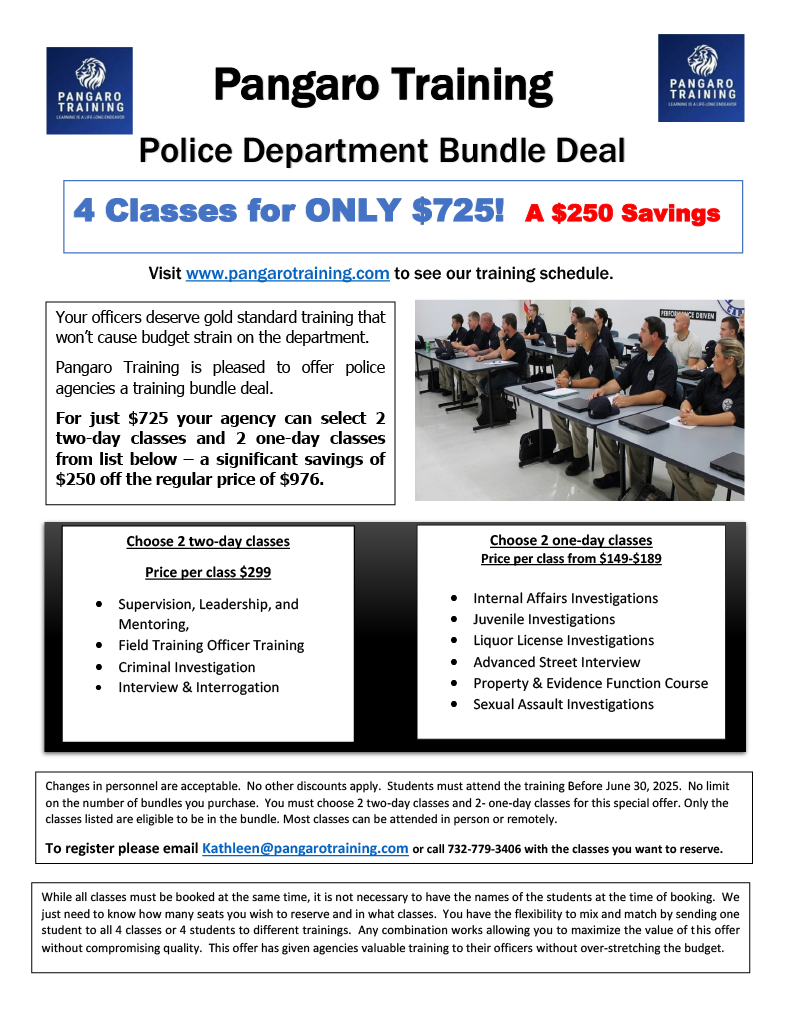
This event has passed.

Field Training Officer (FTO)
April 7 @ 9:00 am - April 8 @ 4:00 pm
| $299*This course will be available in-person and remote.
This Field Training Officer (FTO) Course trains the FTO to train, evaluate, and mentor recruits for work as law enforcement officers. This program covers the basic skills needed to ensure a trainee is ready to conduct solo patrols in a safe and professional manner.
During the 2 days, students will:
- Students will use an FTO Program to follow a detailed list of skills to build on from day one to the release of trainees for solo patrol.
- Learn practical exercises the FTO can use to determine trainee progress and areas that require remediation.
- Review a set of conceptual ideas germane to law enforcement that the FTO can provide to trainees to ensure the trainee understands the rights and responsibilities of acting as a police officer.
- Understand and review the legal basis for police actions in situations such as arrests, searches, seizures, use of force, vehicular pursuits, handcuffing, weapons retention, and other similar actions that take place every day for police officers.
- Understand and review an ethical and integrity-based set of standards for the trainee so they can properly interact with citizens.
- Understand and review the specific rules and regulations of their particular agency, county, and state.
Class participants will review, discuss, and practice the following topics to impart with trainees (including, but not limited to):
- Personal responsibilities as a police officer, both on duty and off duty
- Legal and safety issues making car stops
- Operating the police vehicle under normal and emergency conditions
- Interacting with citizens
- Report Writing
- Safety and legal issues making suspicious person stops
- Traffic direction- techniques, safety, location, and use of devices and timing
- Approaching a crime scene
- Fire call and response
- Active Shooter response
- Court procedures, responsibility and testimony
- Domestic Violence awareness for police officers
- Answering calls for service both emergency and non-emergency
- Making arrests for both disorderly person’s offenses and indictable crimes
- Juvenile interactions and crimes against juveniles and by juveniles
- Narcotics identification, use, and abuse
- Police pursuit
- Proper use of Miranda, show-ups, and other forms of ID
- Dealing with people in crisis



